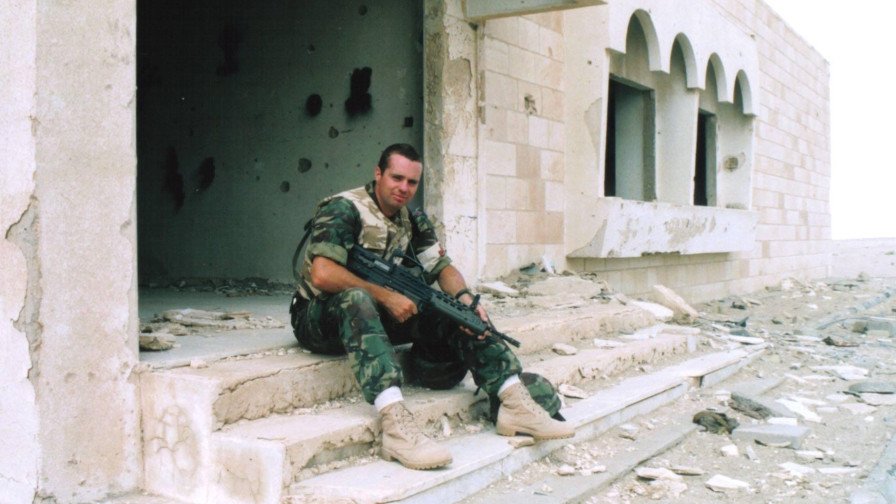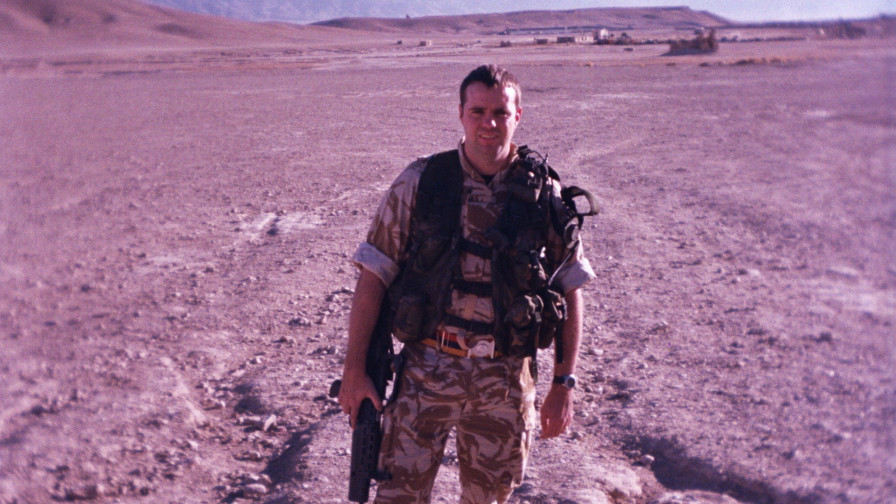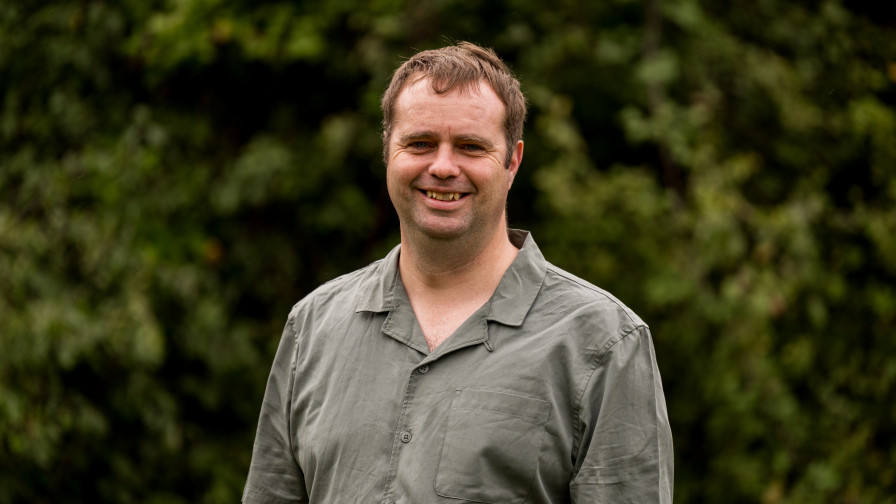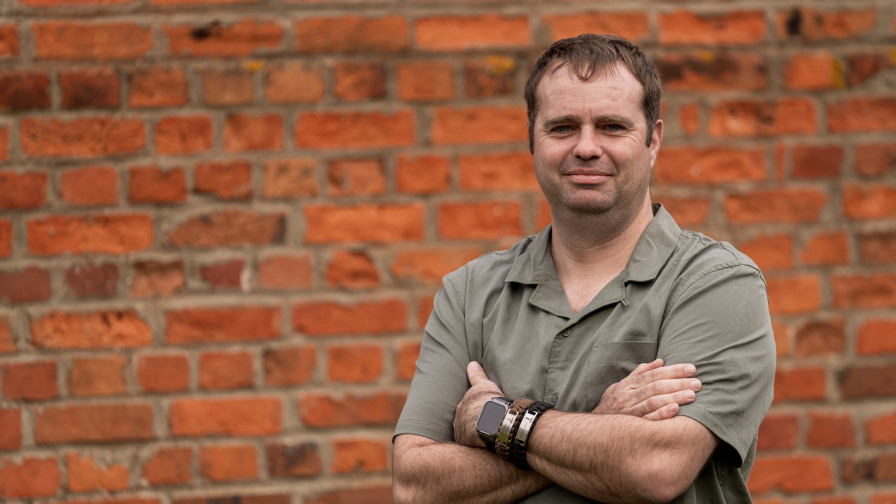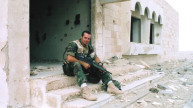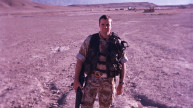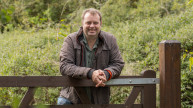Kevin's Story
The experiences of some who serve can change their lives forever.
In our new film, Army veteran Kevin shares how his experiences as a combat medic in Afghanistan led to him developing PTSD, which threatened to destroy his life until our specialist mental health treatment changed everything for him.
Please note that this film contains sound effects of children playing, crowd noises and a description of the aftermath of a mass casualty event that included children.
“How do you thank someone who saved your life?”
Combat medic Kevin’s time in the Army left him with memories that were hard to leave behind. After years of feeling numb, Kevin’s feelings threatened to overwhelm him until our expert mental health treatment changed his life.
Kevin joined the Royal Army Medical Corps at 21, fulfilling a lifelong dream to join the military. Over the next five years he served all over the world as a combat medic, including in Bosnia, Iraq and Afghanistan. Kevin didn’t realise at the time, but he was beginning to experience PTSD.
“I remember driving back from seeing my girlfriend who is now my wife after Bosnia and I felt really down,” he says. “I thought ‘if I can crash the car into a lamp post, it'll knock me out for a bit’. I didn't realise why I was feeling like that, I put it down to ‘I’m just a bit down, I’ll soon get over it’.”
Kevin left the Army in 2005 but completed a tour of Afghanistan as a reservist soon after. It was here that he experienced an incident that would leave a lasting impact. “It was a twin suicide bombing in Kabul,” he says. “Just the sheer volume of casualties, the number of civilians involved… the fact that we had dealt with one and then we had a second explosion. It was changeover time at a school and near a busy junction. It was the worst day.
“The main issue afterwards was the thought of having to deal with children again. A couple of days later there was another explosion, but turned out it was just a training drill on one of the bases nearby. But of course, we were ready to go and I was just thinking ‘not more kids…not more kids’.”
Kevin realised soon after the attack that it had affected his mental health, adding to the trauma that he’d already experienced during his service. “I knew it was a problem, but I just thought it’d be fine once I was back in the UK,” he says.
“I thought ‘I’m a medic, I can sort myself out’ and then I basically lied my way through the next 17 years.”
Once back on Civvy Street, Kevin pushed away any thoughts of mental health issues, telling himself that he “wasn’t that bad”. Friends later described him as “high functioning”, as he was able to continue working and maintain a family life, but inside was a different story. “I boxed everything up, but what I didn't understand was I was boxing up all my emotions,” he says. “I was coasting through life; just existing, numb and suicidal.”
Finally, 17 years after leaving the Army it all became too much, and in 2022 Kevin broke down in front of his wife because he “couldn’t do this anymore.” The next day he called our Helpline, honestly answering the questions posed to him. “A nurse called me back and the first thing she said was ‘is anyone with you right now?’” he says. “I said I was at work so there were people around, when she said ‘good because you can't score any higher on the suicidal risk scale’. At that point I just realised OK, I am bad and I do need help.”
Kevin was signed off work by his GP and worked with our clinicians to devise the best treatment plan for him.
He started online sessions with a senior mental health nurse to help him understand PTSD and then moved on to 1:1 psychological sessions with one of our expert clinicians. “It was such an eye opener to just go through everything and piece my head back together,” he says. “It unlocked my memories and I had so many great memories come back because they’d been locked away with all the bad ones.”
The final phase of Kevin’s treatment was Live Your Life, an online group that aims to help veterans learn to manage their mental health independently ahead of being discharged.
“It was really good,” Kevin says. “There were only a few of us on it and quite quickly we were able to be very honest with each other. One time someone had a bad week, so we talked about it. We've got a WhatsApp group now, and occasionally we'll just check in on each other and make sure we're all OK. It’s a brilliant system.”
Kevin has now completed treatment and is honest about how far he’s come since the day he called our Helpline. “If it wasn't for the help Combat Stress gave me, I wouldn’t be here today,” he says. “How do you thank someone who saved your life?
“My relationships at home are really good, because I'm so much more relaxed and will say if I'm having a bad day. I went to a wedding and there was so much noise that I started to get a bit hypervigilant and was struggling. So, I just nipped out to the car for 15 minutes to calm my head down then came back in.
“Just living a normal life is the big thing, and that’s what I’m doing. To other veterans I’d say call Combat Stress. You might need a little treatment, you might need a lot of treatment, but just ask for it - it's so much better than the alternative.”
September 2024

